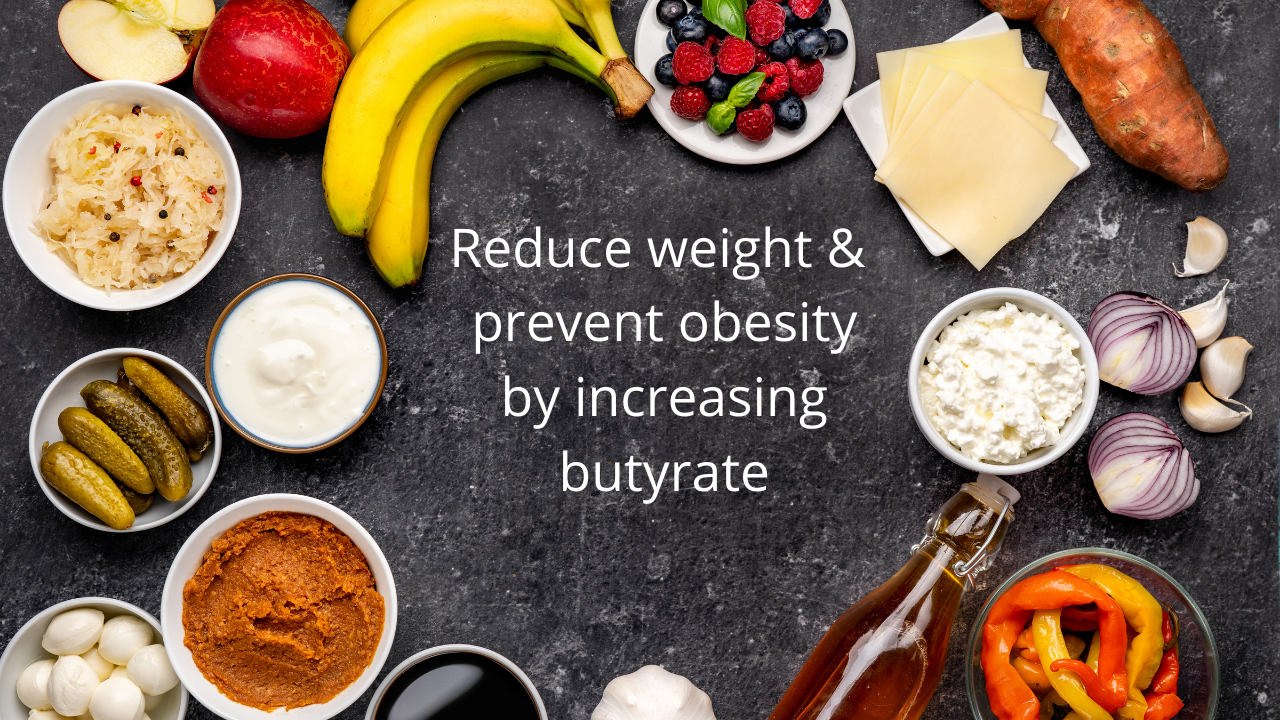
Why we should be encouraging butyrate to reduce weight and prevent obesity
Butyrate is a short-chain fatty acid made by the health-promoting bacteria in our gut on the breakdown of dietary fibre. It has many functions including helping to stabilise blood sugar levels, protecting our brain from diseases such as Alzheimer’s and Parkinson’s, protecting against cancer, and preventing obesity and type II diabetes.
The reason it could be beneficial for tackling obesity and type II diabetes is that butyrate increases the release of gut hormones involved in the regulation of blood sugar levels. So, increasing the production of butyrate in the colon regulates our blood sugar levels better and reduces the risk of obesity.
To increase butyrate in our gut we need to increase prebiotic foods which feed our gut bacteria such as fruit, vegetables, whole grains, and pulses. Our body can’t digest these fibres, so they travel to our gut where they feed the good bacteria that make butyrate.
Food high in butyrate includes almonds, apples, barley, chickpea, garlic, kiwifruit, maize, oat and wheat bran, and soy.
A diet rich in these kinds of plant foods will help our gut butyrate levels while increasing our daily intake of fibre and providing us with healthful antioxidants.
As well as eating the right foods to increase butyrate we can avoid foods and diets which decrease it. We should avoid dieting, for example adopting a low carb, high fat or high protein diet, as these can lower butyrate production by depriving gut bacteria of essential dietary fibres.






